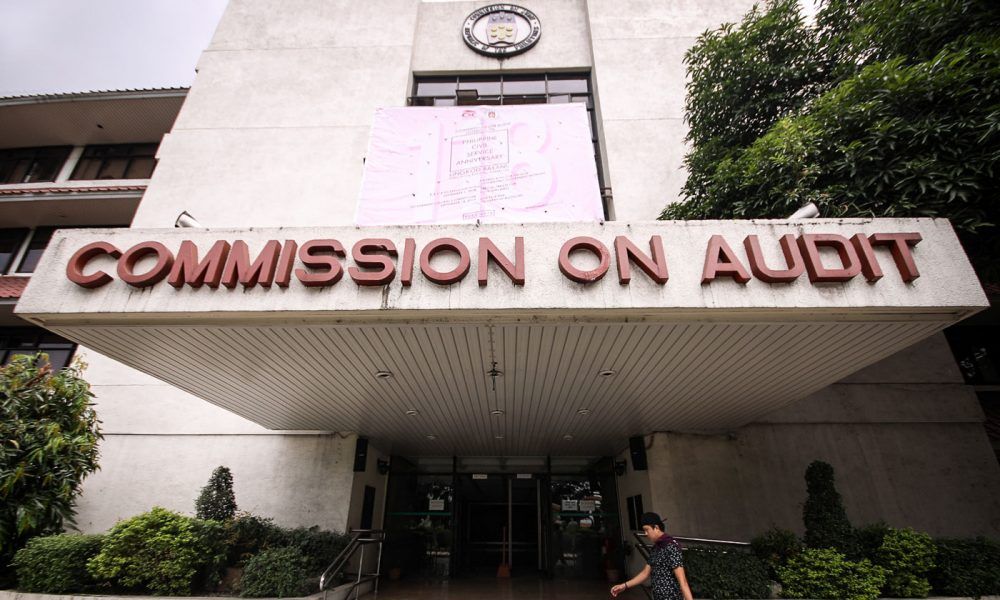The Commission on Election sees no need for hiring of consultants if there are existing units within the government agency that can provide such services internally. COA referred to ‘nonessential’ hiring of consultants by the National Anti-Poverty Commission, resulting in overspending for such services of P8.21 million from its budget of only P200,000.
As an agency tasked with formulating programs and projects to reduce poverty and channel more resources to the poor and marginalized, the National Anti- Poverty Commission with its limited funds must ensure that its resources are well-spent on such poverty alleviation measures.
But the Commission on Audit flagged NAPC for its so-called unnecessary or “nonessential consultants” that caused it to overspend P8.21 million last year, way above its budget of P200,000 for consultancy services.
Calling such payments “unjustifiable” the COA said hiring the consultants without public bidding ran counter to Republic Act No. 9184, the Government Procurement Reform Act and violated certain provisions in the law requiring that the procurement of all goods and services be registered under the Philippine Government Electronic Procurement System.
“The procurement of consulting services, either … an individual consultant or a consultancy firm, is covered by the provisions of RA 9184 and its Revised Implementing Rules and Regulations. As such, the hiring of said consultants without the benefit of public bidding is not justifiable,” COA said in its 2021 report on the NAPC (headed by lead convenor, Secretary Noel Kinzano Felongco.
“Likewise, the requirement that the procuring entity obtain the most advantageous price in hiring them was not assured,” the Inquirer reported citing the COA report.
Consultancy
budget
According to the COA, the total budget for consultancy services as stated in the NAPC’s Annual Procurement Plan was only P300,000, yet “total disbursements incurred for the year was P8,219,636.”
State auditors also found that the NAPC hired 13 consultants whose functions were already being performed by other employees or units internal to the commission.
The 13 additional hires included six legal consultants, four media consultants, a financial consultant, an economic affairs consultant and another on “gender and development” and “indigenous peoples.”
Having a financial consultant was “not essential to the regular operations of the agency” since the Administrative and Finance Unit and the Internal Audit Unit are already performing the “same functions,” the COA said.
Moreover, the NAPC is “not into investing activities [such that it would] need the services of a financial consultant,” the report added.
‘Dispensable’
The agency also has its own Media and Public Relations Unit, therefore the “functions of media consultants were dispensable.”
The media consultants’ tasks of video and photo documentation, organizing media coverage and press conferences, and writing articles about NAPC activities “could also be performed (by the internal media unit) and even other NAPC employees and staff,” the COA said.
The hiring of these “unnecessary” consultants cost the NAPC an additional P3.39 million.
“[These] expenditure[s] may have been avoided had the management properly analyzed [or] assessed whether [the] hiring of such consultants was really essential and advantageous to the mandate and operations of the agency,” the COA said.
The legal consultant, apart from lacking a “written conformity” from both the Office of the Solicitor General and the COA, also cost NAPC P73,299 in monthly fees—exceeding the P50,000 rate allowed by the audit body.
‘Trust and confidence’
The NAPC, in response to COA’s report, maintained that its hiring of consultants was consistent with the provisions on negotiated procurement under RA 9184.
The commission also pointed out that it had “trust and confidence” in those consultants and that “their technical skills [were] needed in the agency.”
The NAPC agreed with the audit body’s recommendation to “stop the hiring of consultants with redundant functions.”
But it maintained that the 13 hired last year were “approved and recommended” by the commission’s Position Allocation List Evaluation Group.
It said “the gravity of the tasks and the lack of responsible officers” to oversee the implementation of Republic Act No. 11291, or the Magna Carta on the Poor, and to supervise a “special project” of the commission together with the Philippine Amusement and Gaming Corp. led to their hiring.
NAPC's mandates are:
To act as the "coordinating and advisory body" that exercises oversight functions in implementing the Social Reform Agenda (SRA) and ensure that it is incorporated into the formulation of national, regional, sub-regional and local development plans
To institutionalize basic sector and NGO participation in managing the SRA cycle
To develop microfinance by establishing the People's Development Trust Fund (PDTF) and strengthening the People's Credit and Finance Corporation as the forerunners for microfinance service
To strengthen LGUs so they can incorporate the SRA in their local development efforts of the Philippines.
NAPC is one of the 12 agencies, formerly from the Office of the President which was placed under the supervision of the Cabinet Secretary, based on Executive Order No. 1 issued by President Rodrigo Duterte on July 4, 2016.
On October 31, 2018, through Executive Order No. 67, the Commission along with the Presidential Commission for the Urban Poor and the National Commission on Indigenous Peoples were transferred from the Office of the Cabinet Secretary to the Department of Social Welfare and Development.
A central aspect of NAPC's mandate is to strengthen partnerships between the national government and these key stakeholders. This is crucial so effective anti-poverty strategies can be crafted. The sectors are the government’s partners in reform and development and are critical in helping to bring about better living conditions for the poor.
RA 8425 divides the basic sectors into 14 main groupings: Farmers and landless rural workers; Artisanal fisher folk; Urban poor; Indigenous people and cultural communities; Workers in formal labor and migrant workers; Workers in the informal sector; Women; Children; Youth and students; Senior citizens; Persons with disabilities; Victims of disasters and calamities; Non-governmental organizations and Cooperatives.
Tags: #COA, #NAPC, #nonessentialconsultants, #overspending
